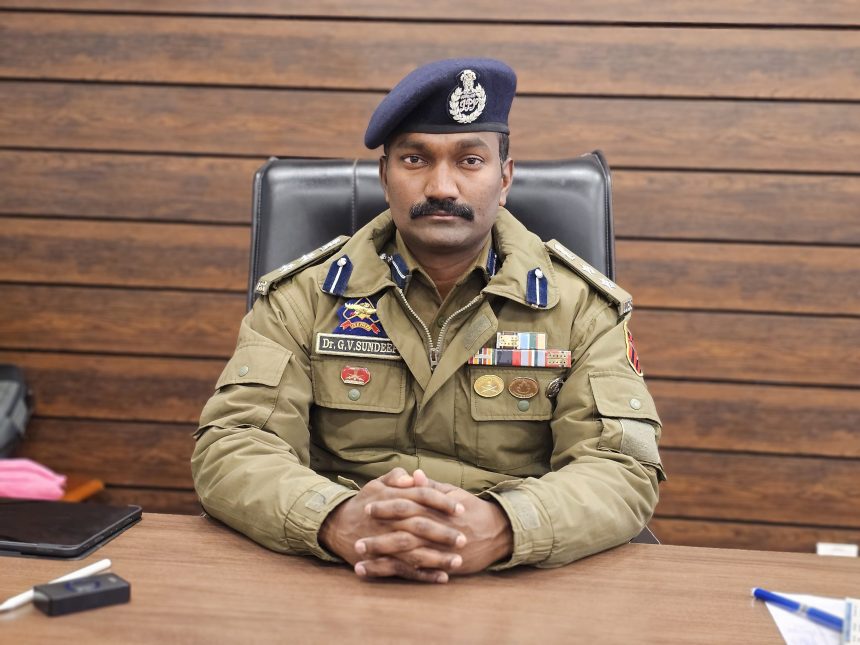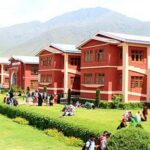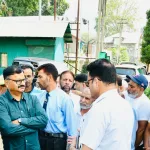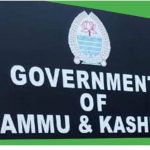Police has played a critical role in combating the drug menace in Anantnag district by arresting 185 drug peddlers and attaching properties worth Rs 26.40 crore as of December 2, 2024. In an exclusive interview with Rising Kashmir reporter, Younus Rashid, SSP Anantnag, G.V. Sundeep Chakravarty detailed the district police’s efforts against drug trafficking and its role in rehabilitation of victims while dismantling the supply chain at its core.
RK: What steps have been taken to address drug menace in Anantnag ?
SSP: We’ve adopted a community-centered approach to combat drug abuse in Anantnag. Regular Police Community Partnership Group (PCPG) meetings, interactions with NGOs, and consultations with local preachers are conducted to create awareness and counsel individuals affected by drugs or other social evils. These efforts help in early intervention to minimize the prevalence of drug abuse in society.
On the enforcement side, we’ve acted decisively against drug peddlers. This year so far alone, we registered 123 cases under the NDPS Act and arrested 185 persons. Among these cases, 102 were challaned, and 24 habitual offenders were booked under PIT NDPS. Besides, we attached properties worth Rs 26.40 crore, including 12 houses, nine shops, and seven vehicles, belonging to drug peddlers.
The police have also destroyed poppy and cannabis crops spread over 250 and 42 kanals, respectively. Moreover, we’ve recovered various drugs, including 2.7 kg of heroin, 1.64 kg of brown sugar, 2.641 kg of charas, and other substances. These actions are a part of our broader strategy to disrupt the supply chain and reduce availability.
RK: What are the main hotspots for drug cultivation and trafficking in Anantnag?
SSP: Drug cultivation is mostly seen in the foothill areas of the district, such as Kokernag, Verinag and Bijbehara, where miscreants exploit available land. It is less common in the main towns, but we keep these areas under close surveillance and have destroyed cultivated crops in several locations.
Anantnag is also a key transit hub, especially along the 40-km stretch of road along highway. Some roadside establishments have been found indulging in drug trade. However, our targeted raids and arrests have disrupted these networks.
RK: What’s the role of parents and society at large in addressing the problem?
SSP: Parents and society are the first line of defense against drug abuse. Parents need to be vigilant about their children’s activities, their social circles, and where they spend their time. While nurturing is important, keeping a close watch is equally crucial to prevent them from falling into bad habits.
We’ve also partnered with religious preachers to educate people about the ethical and religious implications of drug use and trafficking. Their influence has been instrumental in discouraging cultivation and consumption. The collective efforts of parents, community leaders, and religious figures are vital in creating a safer environment for our youth.
RK: How is drug trafficking linked to narco-terrorism?
SSP: Drug trafficking is closely tied to narco-terrorism. Narcotics are smuggled across the border, distributed through a well-organized network, and eventually reach not only Kashmir but other parts of India. These funds are often used to finance terror activities.
There’s credible intelligence indicating that terrorist organisations are being given land to cultivate illegal drugs in Pakistan-occupied Kashmir (PoK) which is being used to generate revenue for terrorism. We’ve intensified surveillance and enforcement to break this network. Anantnag, being a transit hub, has been a critical focus area. Hotspots along key routes like Dooru, Bijbehara have been targeted through raids and arrests, leading to a significant decline in these activities.
RK: What additional measures have the police taken this year in Anantnag?
SSP: Apart from enforcing the law, we’ve frozen the bank accounts of 275 drug peddlers and NDPS accused this year. We’ve also worked to sensitize medical shop owners about the importance of following regulations, such as installing CCTV cameras.
Our efforts extend to cracking down on illicit alcohol production and trade, another contributing factor to societal issues. This multi-faceted approach ensures that we tackle the problem at its roots.
RK: How does the police view drug users, and what support is offered to them?
SSP: We view drug users as victims, not criminals. FIRs are not filed against them. Instead, they are offered help through our drug de-addiction and rehabilitation center, where they receive treatment and counseling. This is part of our effort to give them a chance to recover and reintegrate into society.
We have a positive development where parents are now reaching out to the police and seeking help for their children who are victims of drug abuse. This has greatly assisted the police in rehabilitating them and helping them overcome their drug problem.
J&K Police has a well-equipped rehabilitation center in Srinagar with professional doctors to treat drug victims. This center caters to many individuals, and there are also smaller centers in the district that provide significant support to victims.
RK: What message do you have for the public?
SSP: Drug abuse is not just a law enforcement issue; it’s a societal challenge. We urge everyone—parents, community leaders, and the public—to join hands with us in this fight. If you have any information about drug-related activities, please share it with us. Your identity will always be kept confidential. Together, we can combat this menace and create a healthier, safer society for our youth.








